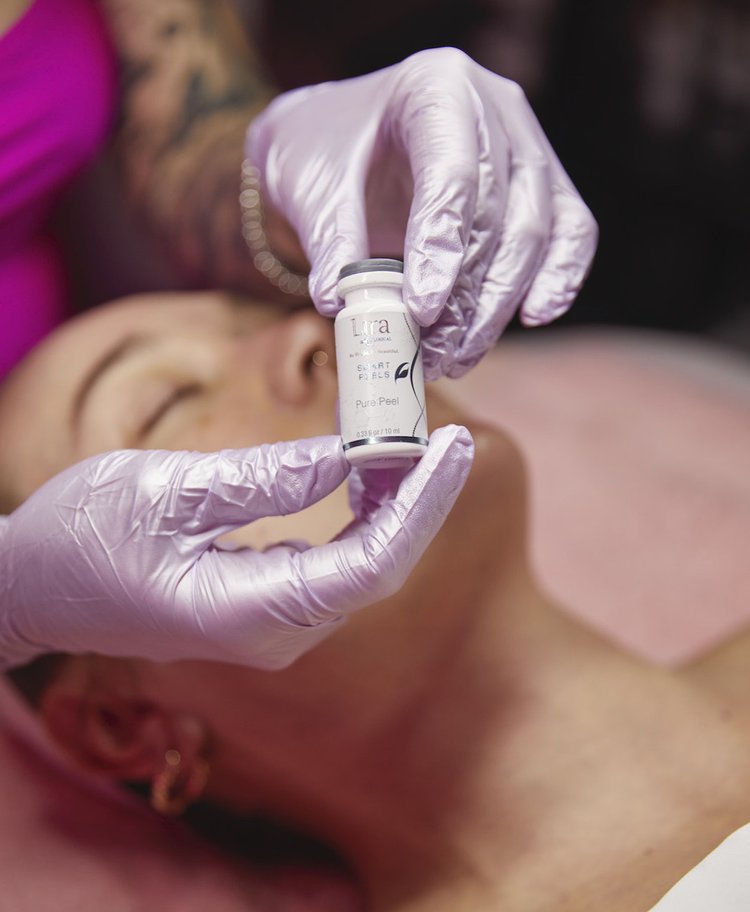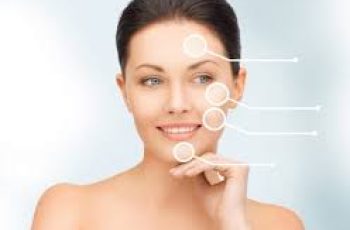
What do copper peptides do?
If you’ve been in this space for a while, you know that there are some powerful skincare ingredients that aren’t as well-known as household names like hyaluronic acid or vitamin C, but they actually play an important role in keeping your skin healthy. If you don’t know what copper peptides are and what they do, don’t panic because that’s exactly what we’re going to learn about today.
What are copper peptides?
Peptides occur naturally in the skin and are part of short chains of amino acids found in the lower layers of the skin. They support the production of collagen and elastin, which are responsible for skin tissue and ensure your complexion looks smoother, firmer, and more youthful. By stimulating the production of collagen and elastin, you can fight issues like fine lines, enlarged pores, and hyperpigmentation. Not to mention the added benefits you can expect for your hair when you incorporate copper peptides into your daily routine.
What are the main benefits of copper peptides for skin care?
Fights signs of aging – Increased collagen makes skin appear plumper and younger
Reduces pigmentation – Copper peptides are rich in antioxidants that fight pigmentation such as sun damage, dark spots, hyperpigmentation and age spots
Increases blood circulation – Increased blood flow causes superficial wounds to heal faster and hair follicles to be stimulated, promoting hair growth
How often should you use copper peptides?
Many skin care experts believe that copper peptides can be used daily. If your skin type allows, you can even use them twice a day. These peptides can be absorbed by the skin, which is beneficial for some skin types, but may cause unwanted side effects for sensitive and dry skin.
Therefore, it is best to combine copper peptides with other moisturizing and nourishing skin care products used daily.
Is it worth using copper peptides?
Yes, as long as you use them correctly and your skin does not show signs of irritation. Copper peptides are a powerful and versatile skin care ingredient that can be easily combined with other more effective skin care formulas. Many believe that the combination of these active ingredients will enhance your daily skin care routine and show impressive results quickly and effectively.
What do copper peptides do for the skin?
As surprising as it may sound, there is no clear evidence of exactly how copper peptides work on the skin. But there are many ways they can benefit the skin, as I mentioned earlier.
By increasing the production of collagen and elastin, you will see an impressive improvement in the overall appearance of your complexion. As for the antioxidant benefits, they can simultaneously repair skin damage while protecting the skin’s surface from further damage caused by free radicals. You will also find that those who often suffer from acne can regulate blemish-causing bacteria by increasing blood flow, which can lead to faster wound healing.
What can’t copper peptides be used for?
Although copper peptides are considered easy to incorporate into your daily skincare routine, there are some active ingredients that should not be used at the same time as copper peptides.
Vitamin C
Retinol
Alpha-hydroxy acids (AHAs), such as glycolic acid
This is because copper peptides absorb so effectively into the skin, which can often cause irritation. To be clear, you can use these ingredients with copper peptide products. You just have to alternate between applying them, leaving enough time between applications to avoid unwanted reactions.
What can copper peptides be mixed with?
There are several skincare ingredients that can be mixed with copper peptides. The easiest way to figure out what works best is to look at hydrating and nourishing ingredients like hyaluronic acid, niacinamide, and rich face blending oils. As I mentioned before, it’s best not to use copper peptides directly with chemical peels, retinoids, and vitamin C.
If you’re concerned about introducing copper peptides into your routine, I recommend consulting a doctor or dermatologist to make sure you and your skin can benefit from them. And of course, don’t forget to do a 24-hour patch test before applying any product to your face.
Do peptides really work?
Yes, peptides do work, but the reasons for this are still a little unclear. Peptides are known to slow down the aging process in your skin, reduce signs of inflammation, and regulate your skin’s microbiome, reducing the risk of bacteria that cause frequent breakouts. Because the amino acids persist in your skin, peptides are a skincare ingredient that benefits all aspects of your complexion without the hype that comes with trendy ingredients.
How long does it take for peptides to work?
When used consistently with other proven, effective ingredients, your skin can see results after a few weeks. For an overall improvement in a smoother, more youthful complexion, it’ll take about three to six months.
So, you can learn more about the effects of copper peptides here. Once you’ve decided whether or not you should introduce these clever ingredients into your daily routine, all you need to do is find the product formula that works best for you.
When layering your skincare, you should start with the thinnest consistency and work your way up to the thickest so that each ingredient can be absorbed into the skin. You’ll find peptides primarily in moisturizers and serums. This ensures that they can be easily combined with other ingredients and can be effectively absorbed into the skin and work their way down to the skin’s layers. If you have any questions, don’t forget to follow us on Instagram.


